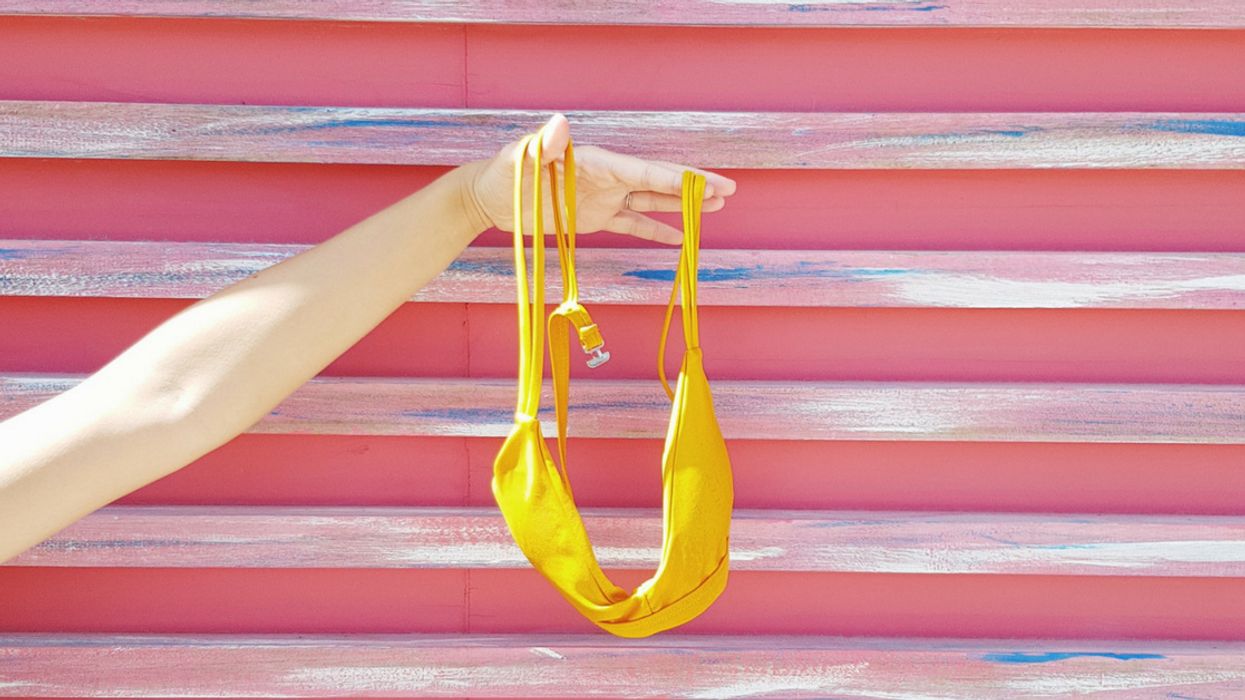October, 2000, LOS ANGELES - I was en route to Dulles Airport in Washington, D.C., on my way home from my commission meeting when it happened. But I didn't learn of it until I landed back at LAX, in Los Angeles. Brad Altman, my business manager, informed me that my mother, Fumiko Emily Takei, had been rushed to the hospital and undergone emergency surgery.
I raced directly to the hospital. I was told that she had just come out of the operating room and was now in the intensive care ward. They said I was allowed to see her. I went in expecting the worst but I was still shaken when I saw Mama. My mother had tubes coming out of every part of her body - from her nose, through her mouth, from her stomach and so many from her thin, shriveled arms. Her half lidded eyes were dim and unseeing. It was devastating to see Mama like that.
The doctor told me that she had a perforation in her stomach through which gastric acid and blood were pouring into her abdomen causing her excruciating pain. If she hadn't been brought to the hospital in time, he said, it could have been fatal. I asked for her prognosis but he would not venture anything -- only that they would monitor the situation and go in 24-hour increments. That weekend at the hospital was to be the most harrowing of my life. Finally, on Monday, they told me that she had survived the surgery and that there was guarded expectation of a slow recovery.
We had such happy plans for her. The following week, on September 29, she was to have turned 88 years old and we had a gala birthday party scheduled for her at the Japanese American National Museum. Forty of her friends and relatives were to have gathered from near and as far away as Toronto, Canada, to help her celebrate this special birthday. All that now had to be postponed. Mama turned 88 in a hospital room with masses of life-sustaining tubes connected to her small body. But she did have a bevy of flowers and lots of get well cards surrounding her.
Mama has been living with me for the past two years. I moved her from the house in which she had been living for almost fifty years, the house she had shared with my father for thirty years until his death in 1979, the house in which I grew up. It was a house so filled with life memories. But she had to be moved from there into my house because she was in the early stages of Alzheimer's disease. She was forgetting to take her medication, the cause of her first hospitalization. At my house, her care would be better monitored. I have a caregiver and my trusted business manager and friend, Brad, to help me out. At first, Mama thrived in my home.
But I began to sense some strange behaviors from Mama. She complained constantly of dust in the house. I was puzzled. My housekeeper keeps my home immaculate. I'd run my finger over the furniture to show her that there was no dust. Still, she complained. She habitually placed paper napkins over exposed food in the house, saying it's to protect them from the dust. Some mornings, she said that she'd wake up with a coat of dust on her face. So, I went into her room the next morning and woke her up by running my hand over her face. "See Mama," I pointed out to her. "There's no dust on your face." Yet, she would not stop. Her dust complaints were ceaseless and it was getting irritating. Then it dawned on me. When we were in the internment camp at Tule Lake during the war, I remembered dust everywhere. The cold wind blew the hard, gritty dust in through the spaces in the floorboard and through the knotholes into our flimsy barrack rooms. The mess hall where we took our meals always covered exposed food to protect them from the dust. Dust was a constant, relentless problem in camp. Mama, I realized, was reverting back to our days of incarceration in that World War II internment camp. It was heartbreaking.
But there were also times of joy and sharing. I used to take my mother on daily walks around the neighborhood. I'd point out the new flowers that had bloomed or the billowy white clouds up in the sky. And she would point out a great, old pine tree and tell me that it was a giant "bonsai." Once she told me of the time when I was a toddler and she used to take me out for walks. My favorite ways of teasing her, she said, was my running away from her and, when she tried to chase after me, I would run farther away giggling with great glee. These experiences from only a month ago before her hospitalization now seem like stories out of some distant past.
Mama came back from the hospital last Wednesday. Her scar from the surgery is healing steadily. But the trauma of the operation had dramatically altered her mental condition. It seems as though there is a new person inhabiting my Mama every twelve hours. At times, she adamantly refuses to talk - only a nod or a shake of the head, only a demanding point to things she wants. Then there are times when she is as charming as a coquettish little girl followed by other times when she is as feisty and combative as a bad drunk.
I savor the small joys when and where I can find them -- like this morning at breakfast. She was looking sleepy so I put my brightly smiling face right in front of her. She promptly mimicked my beaming face. Then I put on an expression of surprise and she immediately put on an exaggerated look of astonishment. When I frowned, she frowned. We spent breakfast time mugging and laughing. She is truly the mother of an actor.
I'm hoping that her return from the hospital to known surroundings and familiar patterns will help slow down the inevitable and relentless process of her disease. But I also know that I'm saying many good-byes every day to the Mama that I had.
Woman Was Fired For Refusing To Wear A Bra At Work—And Now She's Suing
Christina Schell, from Alberta, Canada, stopped wearing bras three years ago citing health reasons.
While Schell did not specify the health reasons, she did state she finds them to be "horrible."
But after her refusal to sign or adhere to a new enforced dress code policy to wear a bra or tank top under her work shirt at a golf course grill where she worked, Schell was promptly fired.
Now, the 25-year-old has filed a human rights violation against the Osoyoos Golf Club, Osoyoos, in British Columbia, Canada.
Schell said:
"I don't think any other human being should be able to dictate another person's undergarments."
When she asked the general manager, Doug Robb, why she had to comply, the manager told her the mandate was for her protection.
Robb allegedly said:
"I know what happens in golf clubs when alcohol's involved."
After losing her job, she brought the case to the British Columbia Human Rights Tribunal and told them the club's dress code was discriminatory because the rule didn't apply towards male employees.
Schell told CBC:
"It's gender-based and that's why it's a human rights issue. I have nipples and so do the men."
David Brown, an employment lawyer in Kelowna, BC, said gender-specific dress codes could be viewed as discriminatory under the BC Human Rights Code.
He stated:
"It's an interesting question as to whether or not an employer can dictate the underwear that women can wear, but they don't say anything about the underwear that men can wear, and does that create an adverse impact on the individual?"
Brown added:
"If this policy is found to be discrimination, the next question is does the employer have a bonafide occupational requirement to essentially impose this on the individual?"
"I'm kind of scratching my head as to what that occupational requirement would be."
@GlobalBC The policy is sexist the peopl supporting it are sexist. Hope she wins her complaint— Lori bell (@Lori bell) 1529692660.0
@Shelby_Thom @WoodfordCHNL @GlobalOkanagan @GlobalBC Then men should have to wear either a tank top or undershirt— caffene fiend (@caffene fiend) 1529624161.0
@SoldByBrock @Shelby_Thom @GlobalOkanagan @GlobalBC What does common courtesy have to do with wearing a bra? Breast… https://t.co/ZVI2xDdpgf— M Shumway (@M Shumway) 1529843759.0
As for the tank top option, due to working under oftentimes extreme heat serving tables outsides, Schell did not want to wear another layer of clothes just because of her gender.
Schell said:
"It was absurd. Why do you get to dictate what's underneath my clothes?"
Employment lawyer Nadia Zaman told CBC that the club can enforce a gender-specific policy as they deem necessary as long as the establishment can prove it is for the occupational safety of its workers.
But the attorney questioned if forcing female employees to wear a bra was applicable in this case.
Zaman stated:
"If they simply require that female employees wear a bra but then they don't have a similar requirement for males, and they can't really justify that … then there is a risk that their policy's going to be deemed to be discriminatory."
Under British Columbia's discrimination law, it is illegal for employers:
'to discriminate against any individual because of his race, color, religion, sex, or national origin'.
@GlobalBC @globalnews Logistically bras or the absence of does not impact health or work performance. That is my v… https://t.co/65cLHBMowf— Louisette Lanteigne (@Louisette Lanteigne) 1529769211.0
McDonald's employee Kate Gosek, 19, agrees with Schell in that the dress code is "unnecessary." She too was harassed by her employers at a McDonald's in Selkirk, Manitoba, over refusing to wear a bra.
"She just told me that I should put on a bra because, McDonald's—we are a polite restaurant and no one needs to see that."
Schell's case sparked plenty of debates on Twitter.
@DunnMan77 @GlobalBC It's just discriminatory, woman shouldn't have to wear bras if they don't want to. As well as… https://t.co/RXhRVWUuNy— Mary Johnson (@Mary Johnson) 1529685276.0
@DunnMan77 @GlobalBC Men do not have to wear underpants if they don't want to. As of right now there are no laws to… https://t.co/l8FuPVybWo— Mary Johnson (@Mary Johnson) 1529686418.0
@GlobalBC Women have the right not to be forced to wear a bra Shaving & makeup also is a choice. If you want to do… https://t.co/Ybkj6PLDnD— Lozan (@Lozan) 1529686156.0
@Lozan72 @GlobalBC I would completely understand her and your argument if we were talking about a potential law to… https://t.co/trRyNAubn4— Chris George (@Chris George) 1529690293.0
@GlobalBC This story frustrates me. There's no dress code equivalent for men? Well if I saw the outline of a male s… https://t.co/5YbAvXKRcO— Molly Max (@Molly Max) 1529705327.0
Schell is not alone in her disdain for bras.
@GlobalBC I personally HATE wearing a #bra absolutely hate it with passion and unashamed to admit it. I HATE BEING… https://t.co/GEi3LtxIDa— Lozan (@Lozan) 1529686305.0
Schell is still waiting to hear from the Human Rights Commission about her claim.
H/T - GettyImages, Twitter, Indy100, CBC











